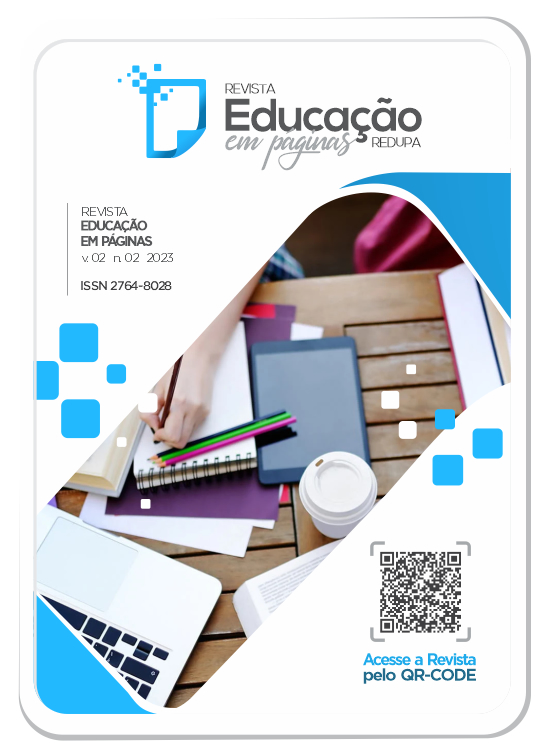Concepção escolanovista de educação: realidade e prática efetiva nas escolas primárias de Cabinda de 2002 a 2021
DOI:
https://doi.org/10.22481/redupa.v2.13185Palavras-chave:
concepção escolanovista, prática educativa, realidadeResumo
Neste artigo, procurou-se compreender as políticas da educação em Angola no período de 2002 a 2021, fazendo uma incursão da concepção escolanovista de educação na realidade da prática efetiva nas escolas primárias de Cabinda. A situação problemática que incentivou o desenrolar do tema, deu lugar à definição do subsequente problema científico: Que concepção tem sido aplicada no sistema da educação angolana: realidade e prática efetiva nas escolas primárias de Cabinda, de 2002 a 2021? Com a finalidade de contribuir na resolução do problema científico definido, foi formulada a hipótese à continuação: Capacitação de professores na concepção escolanovista de educação é possível fortalecer a realidade da prática efetiva nas escolas primárias de Cabinda. Com propósito de que constatasse-se a hipótese formulada, foi preconizado como objectivo geral: Analisar a concepção escolanovista de educação na realidade da prática efetiva nas escolas primárias de Cabinda, de 2002 a 2021. Foram aplicados os métodos do nível teórico, empírico e estatístico-matemático. A técnica utilizada foi o questionário que serviu de instrumento da recolha de dados; estes foram analisados, discutidos e interpretados tendo alcançado como resultados, os professores desconhecem a metodologia de ensino para escolas primárias, fora dos movimentos da reforma educativa; o método expositivo é a via principal porque faz-se a transmissão e avaliação somente dos conhecimentos. Entretanto, Angola precisa assumir uma metodologia que coloca o aluno como sujeito da sua aprendizagem e que o professor de ensino primário no mínimo deve ser licenciado.
Downloads
Referências
ARANHA, Maria Lúcia de Arruda. Filosofia da educação. 2. ed. São Paulo: Moderna. 1996.
CRESWELL J. K Projeto de Pesquisa: métodos qualitativo, quantitativo e misto (2ª edição). - Porto Alegre : Artmed , 2007.
KETELE, J.; ROEGIERS, X. Metodologia da recolha de dados: fundamentos dos métodos de observações, de questionários, de entrevistas e de estudo de documentos. Lisboa: Instituto Piaget. 1999.
LIBÂNEO, José Carlos. Didática: a pedagogia, crítico-social dos conteúdos, São Paulo: Loyola. 2002.
ROGERS, Carlos. Liberdade de aprender . Porto : Medicina. 1985.
SAVIANI, Dermeval (2017). O legado educacional do século XX no Brasil. . São Paulo: Campinas.
TEIXEIRA, Anísio. Educação é um direito. Rio de Janeiro: Editora da UFRJ. 1996.
UNESCO. Educação para todos: o imperativo da qualidade. Relatório conciso. Paris: Edição on-line:www.unesco.org.br/2005.11.12. 2005.
Downloads
Publicado
Como Citar
Edição
Seção
Licença
Copyright (c) 2023 Mónica Dina Chilongo Jova, Jeremias Zau Kimbuca, Adelaide Cambinja Leopoldo

Este trabalho está licenciado sob uma licença Creative Commons Attribution 4.0 International License.






